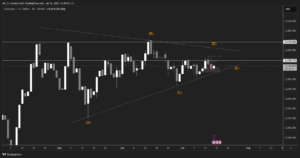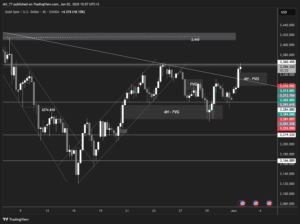GBP/USD falls below 1.19 ahead of the UK fiscal statement, where chancellor Hunt is expected to hike taxes and cut spending to fill a £50 billion back hole.
· US retail sales jump, boosting hawkish Federal Reserve bets
· UK gilt yields have fallen to a 20-month low giving the government a little more wiggle room
· Oil falls for a second day as geopolitical tensions ease and after a mixed inventories report
Concerns over a Russian missile hitting NATO member Poland and surging inflation in the UK resulted in a negative close for European stocks.
Wall Street also booked losses after stronger-than-expected retail sales revived inflationary worries and after US retailer Target provided a worrying outlook for the key holiday quarter. The stock closed down 13% and dragged the broader retail sector lower.
Retail sales rose at the fastest pace in 8 months, suggesting that the Fed was unlikely to ease up in its battle against inflation soon. Fed speakers erred on the hawkish side and investment bank Goldman Sachs lifted its terminal rate forecast to 5.25%, up from 5%.
Weakness on Wall Street isn’t translating to a softer opening in Europe. Instead, indices are set to rebound, with the DAX pointing to a 0.4% rise and the CAC to gains of 0.25%. However, the FTSE is set to underperform with a modest fall ahead of the UK Chancellor’s fiscal statement.
Autumn Budget
Chancellor Jeremy Hunt is set to announce an array of tax rises and spending cuts to fill the government’s £50 billion black hole in public finances. On a positive note, gilt yields have fallen considerably and are at a two-month low, around the level that they were before the Liz Truss and Kwasi Kwarteng budget turmoil. This should mean that the Chancellor has a little more wiggle room. That said, the Chancellor has been clear that difficult decisions must be made, and tough times are ahead.
Many of the measures expected have been pre-released, so there are unlikely to be many big surprises today. The OBR’s forecasts are likely to garner much attention, particularly as they were missed out in the Kwasi Kwarteng mini-budget.
GBP/USD
While GBP/USD has rallied around 6% over the past six weeks, the pair could struggle to push much higher if the Chancellor over-tightens fiscal policy, which could accelerate the UK’s fall into recession. Demand destruction is one sure way to lower inflation, which means that the BoE may need to hike rates less aggressively to reduce inflation back to more palatable levels. As a result, the pound, which rose to a 3-month high against the USD this week, could struggle to push much higher.
Oil
Oil prices are falling for a second straight session, dropping to a three-week low as geopolitical concerns eased, and COVID in China continues to hurt the demand outlook. Oil prices fell after NATO said the missile strike on Poland wasn’t a Russian attack, calming fears of the war between Russia and Ukraine spilling out across the border. Near-term supply risks have eased since there hasn’t been an immediate escalation. Meanwhile, oil inventory data was mixed. While crude oil stockpiles fell by 5.4 million barrels, according to the EIA, ahead of the 400k barrel drop forecast. However, gasoline and distillate fuel inventories rose by more than expected.
Disclaimer: This article is not investment advice or an investment recommendation and should not be considered as such. The information above is not an invitation to trade and it does not guarantee or predict future performance. The investor is solely responsible for the risk of their decisions. The analysis and commentary presented do not include any consideration of your personal investment objectives, financial circumstances, or needs.
Sources: Bloomberg, CNBC, Reuters
Original article provided by Trading Writers





